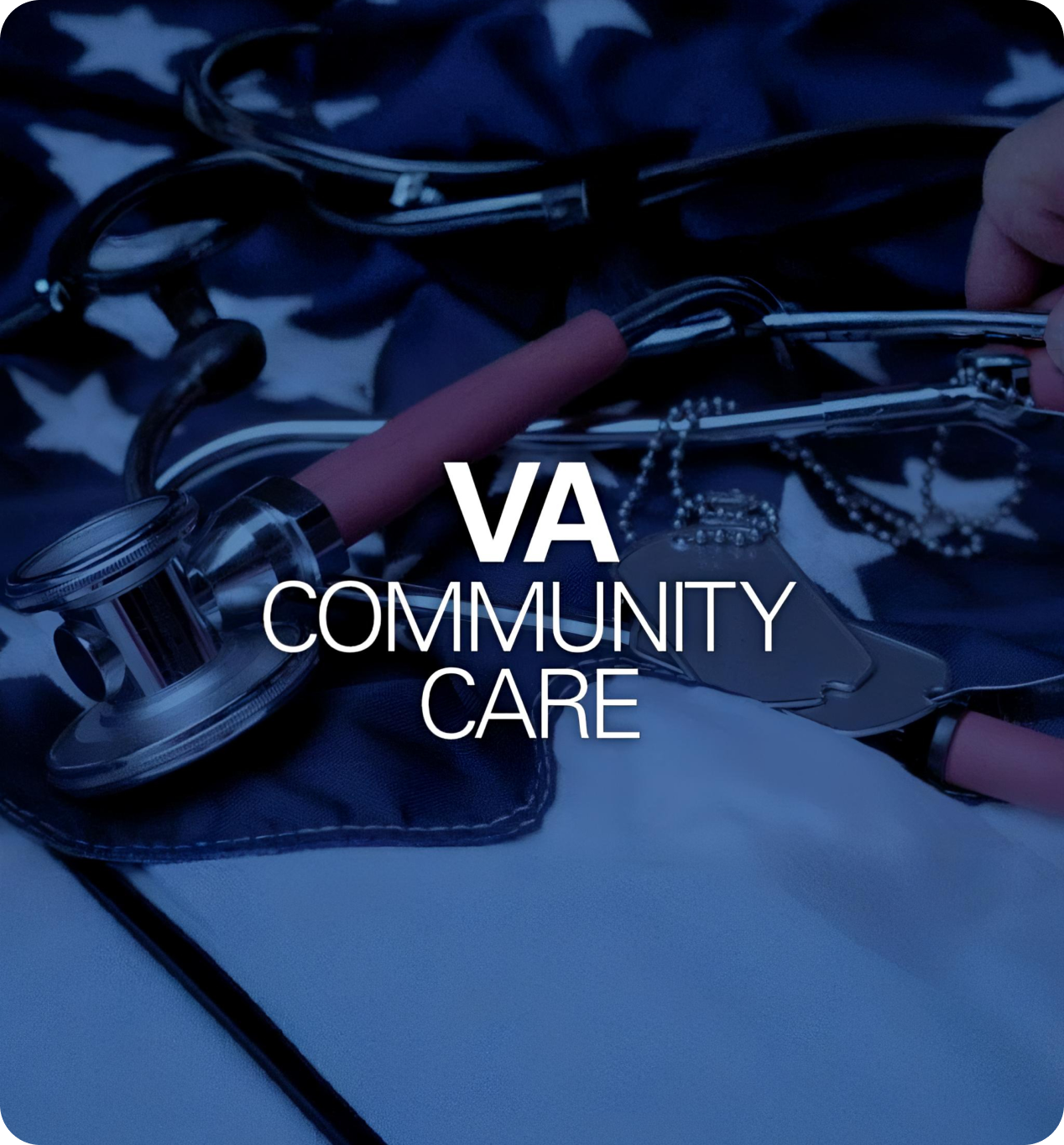Join
The VA Community Care Network
A Guide for Bipolar Disorder Specialists
In California, independent Physician Assistants (PAs) can bill the Department of Veterans Affairs (VA) for services provided to veterans, but it’s essential to understand the regulations surrounding this process.
Welcome to Veterans Desk, your trusted resource for connecting healthcare professionals with meaningful opportunities to serve our nation’s veterans. This guide is designed for psychiatrists, psychiatric nurse practitioners, and licensed mental health professionals who specialize in the diagnosis and treatment of Bipolar Disorder.
Whether you work in private practice, a group setting, or a telehealth model, this page provides everything you need to join the VA Community Care Network (CCN) and begin supporting veterans living with bipolar I, bipolar II, cyclothymia, and other mood disorders.

Step-by-Step Enrollment in the VA CCN
Verify Your Credentials
- Hold a valid state license in psychiatry, psychology, PMHNP, or another qualifying mental health discipline.
- Provide board certification or proof of bipolar disorder-related continuing education.
- Veterans transitioning to civilian care should submit DD214 documentation.
Prepare Required Documents
- Copy of active license, malpractice insurance, and DEA certificate (if applicable)
- Updated CV/resume and completed W-9 form.
- Documentation of experience treating bipolar or related mood disorders
Submit Your Application
Use the appropriate regional portal:
Complete Mandatory Training
Training topics may include:
- VA documentation and HIPAA
- Evidence-based bipolar disorder treatment planning
- Use of secure VA systems for telehealth and communication
Visit the VA Provider Training Portal for course access.
Credentialing & Facility Review
- Your license, background, and qualifications will be verified
- If applying as a facility or clinic, you may undergo a site inspection.
Final Contract & Start of Services
- Receive your contract outlining reimbursement terms.
- Begin seeing referred veterans for bipolar-focused care in person or via telehealth.

Why Bipolar Disorder Specialists Matter to Veterans
Veterans with bipolar disorder face higher risks of hospitalization, unemployment, suicide, and co-occurring substance use disorders. Timely and evidence-based care—including accurate diagnosis, medication management, and psychotherapy—is essential to help veterans stabilize mood episodes and improve overall well-being.
As a bipolar disorder specialist, your role in the VA CCN includes:
- Providing differential diagnosis and treatment of bipolar spectrum disorders
- Managing medications, including mood stabilizers, antipsychotics, and adjunctive therapies
- Offering psychotherapy services such as CBT, DBT, and psychoeducation
- Coordinating with VA case managers, peer support, and family systems


Key Benefits of Joining the VA CCN
- Serve a Unique Population: Help veterans manage complex mood disorders and reintegrate into civilian life with improved mental health stability.
- Streamlined Reimbursement: Work with simplified billing protocols through the VA, reducing administrative burden.
- Collaborative Care Environment: Engage in team-based care with VA psychiatrists, social workers, and primary care providers.
- Professional Impact: Make a measurable difference in preventing hospitalizations, relapses, and suicidality in a high-risk population.
- Access to Training & CME: Leverage VA-supported learning opportunities for bipolar treatment in military and veteran populations.

Bridging the Gap for Veterans

Educational Support & Career Growth
- Attend VA-sponsored CME courses focused on mood disorders and suicide prevention.
- Apply for federal student loan forgiveness programs if eligible.
- Join VA collaborative learning communities focused on SMI (serious mental illness) management.

Transitioning from Military Service
- Military psychiatrists, psychologists, or PMHNPs should explore expedited licensing options in their state.
- Emphasize deployment-related experience with bipolar disorder, trauma, or comorbid mental health conditions when applying.
Frequently Asked Questions (FAQs)
Can I manage bipolar disorder medications through VA CCN?
Yes. If you are a prescribing provider (e.g., MD/DO/PMHNP) with an active DEA license, you can manage mood stabilizers, antipsychotics, and other psychiatric medications.
Is therapy reimbursable under the VA?
Yes. Evidence-based therapies for bipolar disorder—including CBT, DBT, and family therapy—are reimbursed when pre-authorized.
Can I offer tele-mental health services?
Yes. The VA strongly supports telehealth for mental health, especially for veterans in underserved or rural areas.
Do I need to treat only veterans with bipolar disorder?
No. While this guide is focused on bipolar care, you may also be referred to veterans with depression, PTSD, and other co-occurring conditions as appropriate.

